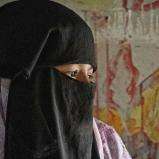NEW YORK, June 13, 2024 — Almost 20 percent of Rohingya refugees tested in the Cox's Bazar camps in Bangladesh have an active hepatitis C infection—a globally unprecedented prevalence rate—according to a Doctors Without Borders/Médecins Sans Frontières (MSF) study. Meanwhile, access to screening, testing, and treatment in the camps is almost non-existent as MSF has been the sole provider of hepatitis C care there for four years.
“Our teams [at Jamtoli Clinic and Hospital on the Hill] have to turn away hepatitis C patients every day because the need for care exceeds the capacity we have as one organization,” said Sophie Baylac, MSF head of mission in Bangladesh. “There are barely any other available and affordable alternatives for these patients outside our clinics in the camps.”
Faced with an influx of hepatitis C patients in the Cox’s Bazar camps over the last few years, Epicentre, MSF's epidemiology and research arm, carried out a survey of 680 households in seven camps between May and June 2023 by screening and testing randomly selected adults. The results show that almost a third of the adults in the camps have been exposed to hepatitis C infection at some point in their lives and that 20 percent have an active hepatitis C infection. Given the study’s findings, it is estimated that 86,000 people in the camps have an active hepatitis C infection and need prompt treatment in order to be cured and to stop the virus from spreading to others.

More support is needed to tackle alarming rates of hepatitis C among Rohingya refugees
Read more“The use of health care equipment that has not been disinfected like syringes, which are widely used for the treatment of other diseases and conditions in the community, could explain the potential ongoing transmission and the high prevalence of hepatitis C among the population living in the overcrowded camps,” Baylac said.
Hepatitis C attacks the liver and can lead to serious or even fatal complications, usually cirrhosis or liver cancer. While highly effective tests and medicines that can cure the disease—direct-acting antiviral drugs—now exist, access is inadequate in many low- and middle-income countries. Since Rohingya refugees are not legally allowed to work or leave the camps, they are heavily dependent on humanitarian and medical aid for survival. For people with hepatitis C who MSF cannot treat, paying for expensive diagnostic tests and drugs or obtaining appropriate care outside the camps is essentially impossible.
From October 2020 to May 2024, more than 12,000 people with suspected active hepatitis C infection were tested by MSF with the GeneXpert diagnostic machine—a lifesaving testing device that’s the focus of MSF’s ‘Time for $5’ campaign calling for lower prices and expanded access. Over 8,000 patients with confirmed active infection have received treatment in MSF facilities. MSF’s treatment program in Cox’s Bazar has the capacity to enroll approximately 150 to 200 new hepatitis C patients per month.
The World Health Organization (WHO), the International Organization for Migration (IOM), and Save the Children recently announced that they will help treat 900 hepatitis C patients, but more needs to be done given the immense needs in Cox’s Bazar. Other actors must step up and help provide care to combat the disease, specifically by helping to carry out a large-scale prevention "test and treat" campaign that would test people for hepatitis C and quickly get them onto treatment to cure them. Many actors who were working in the camps soon after more than 700,000 Rohingya were forced out of Myanmar in August 2017 have since left, making it difficult for people to access services for chronic conditions like hepatitis C that require longer-term and consistent care.
“As one of the most persecuted ethnic minorities in the world, the Rohingya population is paying the price for decades of lack of access to health care and to safe medical practices in their country of origin,” Baylac said. “Every generation of refugees living in the camps is affected by hepatitis C. They risk severe liver complications—which are not treatable in camp settings—and may die from it despite the existence of a very effective, well-tolerated, and patient-friendly treatment (one tablet per day for three months) that can be inexpensive.”
WHO guidelines and simplified models of care used by MSF in similar contexts have proved efficient to scale up hepatitis C treatment with very good outcomes in humanitarian and low-resource settings. Over the past two years, MSF has also supported the Bangladesh Ministry of Health in drafting national clinical guidelines for the treatment of hepatitis C. MSF stands ready to continue working with national authorities and inter-governmental and non-governmental organizations to implement large-scale prevention and health promotion activities, as well as a mass "test and treat" campaign in all Cox's Bazar camps in order to limit the virus transmission and treat as many patients as quickly as possible.

